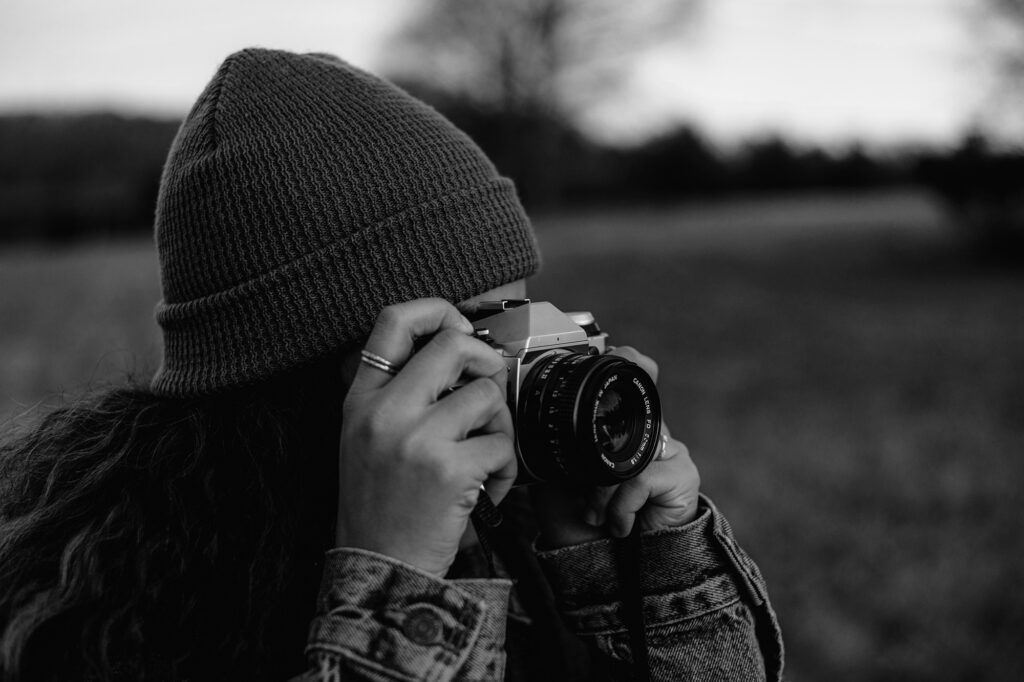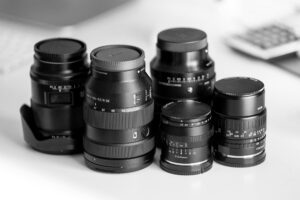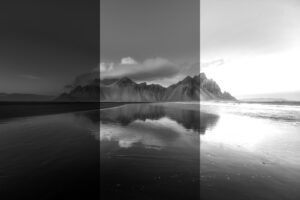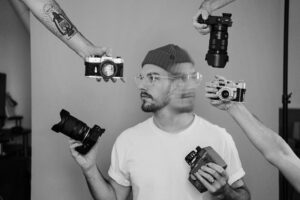A few years ago, if you asked people’s opinions on how to become a photographer, many would’ve replied that “you need to go to college and get a degree on it” . But today, things are different. While studying photography at university is still a valid path, it’s no longer the only accessible one.
You can become a photographer by going to school, learning on the job, or even teaching yourself. I’ve studied management in university, but I’ve been working as a photographer for several years now. In this post, I’ll share the path I took, and what I recommend if you’re just starting out.
TL;DR:
- Start with real interest, not just the idea of being a photographer
- Use any camera (even your phone) to begin
- Learn exposure, composition, and camera basics
- Share your work online & build a personal brand
- Choose a specialty (like portrait, product, etc.)
- Highlight what makes your work unique
- Stay updated & keep improving
- First clients are hardest, be proactive!
1. Make Sure You Actually Enjoy Photography
Before you dive into a courses or buy a new camera, figure out if you genuinely enjoy taking photos.
Start with your phone. Go out, shoot, and ask yourself: Do I love doing this? Why do I want to become a photographer?
For example, I started as a hobbyist. But eventually, I realized I wanted to show people the things we all overlook in daily life. That personal reason gave me the motivation to pursue photography seriously.
Ask yourself:
- What excites me about taking photos?
- What stories do I want to tell with my camera?
If you’re wondering “What is photography, really?”, we’ve got a full post that unpacks that concept right here: What Is Photography & Who Is a Photographer.
2. Buy Your First Camera (If You’re Ready)
If you’re confident about loving photography, it’s time to save up and buy your first camera. It’s a process that takes time, research, and patience, especially with so many options available nowadays.
You don’t need the latest and greatest to start. Anything made in the last 5 years, would be more than enough.
Pro Tip: Starting on a budget? Consider used gear or focus on mobile photography until you’re ready to upgrade.
3. Start Learning, Your Way
There are three main ways to learn photography:
- Formal education: University or art school
- Workshops & courses: Short-term training, online or offline
- Self-learning: Online courses, YouTube, blogs, books
I chose the third option -learning on my own- and it gave me flexibility to study on my terms.
You can start by watching educational content on YouTube or with free online courses. If you prefer reading, look for blogs, books, or guides.
4. Master the Basics: Gear, Exposure & Composition
Start with:
- Knowing your camera buttons and menus
- Understanding the exposure triangle (Aperture, Shutter Speed, ISO)
- Learning the basics of composition
These are the building blocks of all great photography. /you can start by reading our guide on exposure and manual camera settings.
5. Build an Online Presence
Now that you’re creating, you need to share your work.
Start with:
- Instagram (great for local visibility)
- Photography-specific platforms like 500px
- Your own personal website (this is the most important)
Having a website gives you control over your portfolio and makes you look professional.
I use WordPress + a domain and hosting. But there are plenty of alternatives too.
6. Choose a Photography Niche (Eventually)
As you explore different types of photography, try to find at least one area you want to focus on.
This could be:
- Portraits
- Events
- Products
- Fashion
- Food
- Nature
- Wildlife
- etc.
Focusing on a niche helps you build a clear personal brand at the beginning. That makes it easier to get hired and remembered.
Pro tip: You can also take the one-man studio route.
7. Find Your Unique Selling Point
What makes your photography different?
Ask yourself:
- What style or mood do I create?
- Do I shoot in unique locations?
- Can I offer extra services (e.g., video)?
Example: I can combine portraits with natural settings instead of plain backdrops. I offer short video reels alongside photos. And I have a unique editing style. These make me stand out to clients.
Find what sets you apart, and use it to market yourself.
8. Keep Learning, Always
Photography is always evolving. Stay up to date with:
- New gear
- Software updates
- Social trends
Also, keep challenging yourself.
Try new lenses, edit styles, or genres. Growth is a never-ending part of being a good photographer.
Bonus: Getting Your First Clients
Once you’re ready to go pro, you have two options:
- Apply for photography jobs or internships
- Go freelance and find your own clients
Getting those first few clients is the hardest part.
Use everything you’ve built -your website, Instagram, and contacts- to attract attention.
Let people know you’re available. Make it easy to contact you. Show up in places where potential clients hang out (online or offline).
Over-deliver. Make the client experience great. Happy clients = repeat clients + new referrals
Final Thoughts
If you’re serious about becoming a photographer, now is the best time to start. You don’t need to follow a traditional path. What matters most is your passion, your persistence, and your willingness to keep improving.
Take the first step.
Shoot, learn, share, and repeat.
Want to keep learning? Follow me on your favorite social media (handle everywhere: @MediabyHamed / search for Hamed Media) or subscribe to my newsletter for more practical tips and guides like this.
FAQ
Do I need formal education to become a photographer?
Not necessarily. Many successful photographers are self-taught through practice, online tutorials, and workshops.
What gear do I need to start photography?
A camera (even a smartphone) and a basic understanding of light and composition are enough to begin.
How long does it take to learn photography?
It depends on your dedication, but with consistent effort, you can grasp the fundamentals in a few months.




